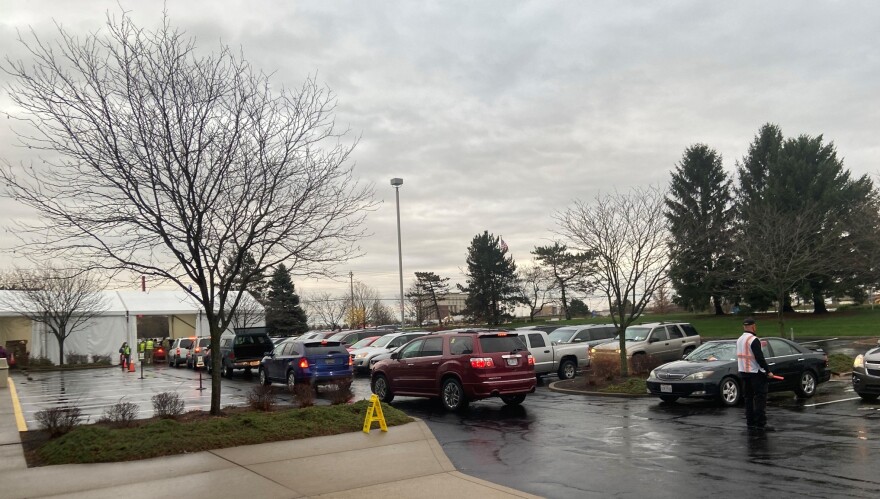Unemployment and financial problems from the pandemic have brought millions of people to food banks, which are serving 150,000 more Ohioans per month than they were a year ago. That’s putting a strain on the system that supports those people in need.
Ohio's food banks are getting flat funding of $24.5 million in the new two year state budget, plus $7 million for food storage, transportation and distribution from the federal CARES Act.
But while Ohio Association of Food Banks executive director Lisa Hamler-Fugitt said she's appreciative, she also said it’s not enough.
“We have never seen anything like this straight out of the gate. I mean, we're 11 months into a pandemic and the economic recession, and the demand just continues to increase week over week and month over month," Hamler-Fugitt said.
She's requesting an increase in pass-through federal CARES Act funding to buy emergency foods, as well as personal hygiene and home cleaning products. And she's also hoping for the amount in the budget for foodbanks to nearly double, with money from Temporary Aid to Needy Families (TANF).
"The biggest challenge that we have right now is what's going to happen in the next 30 to 60 days to the individuals that are standing in our food line. That's going to put more pressure on the demand for food assistance. So we need more, not less," Hamler-Fugitt said.
Benefits for jobless workers from the COVID relief package that passed in December expiring on March 14 and the federal eviction moratorium ending March 31.
The Ohio Association of Food Banks said more than 1 in 5 of the people they serve are over 60, and it's estimated that half are not eligible for the Supplemental Nutritional Assistance Program (SNAP), commonly known as food stamps.







